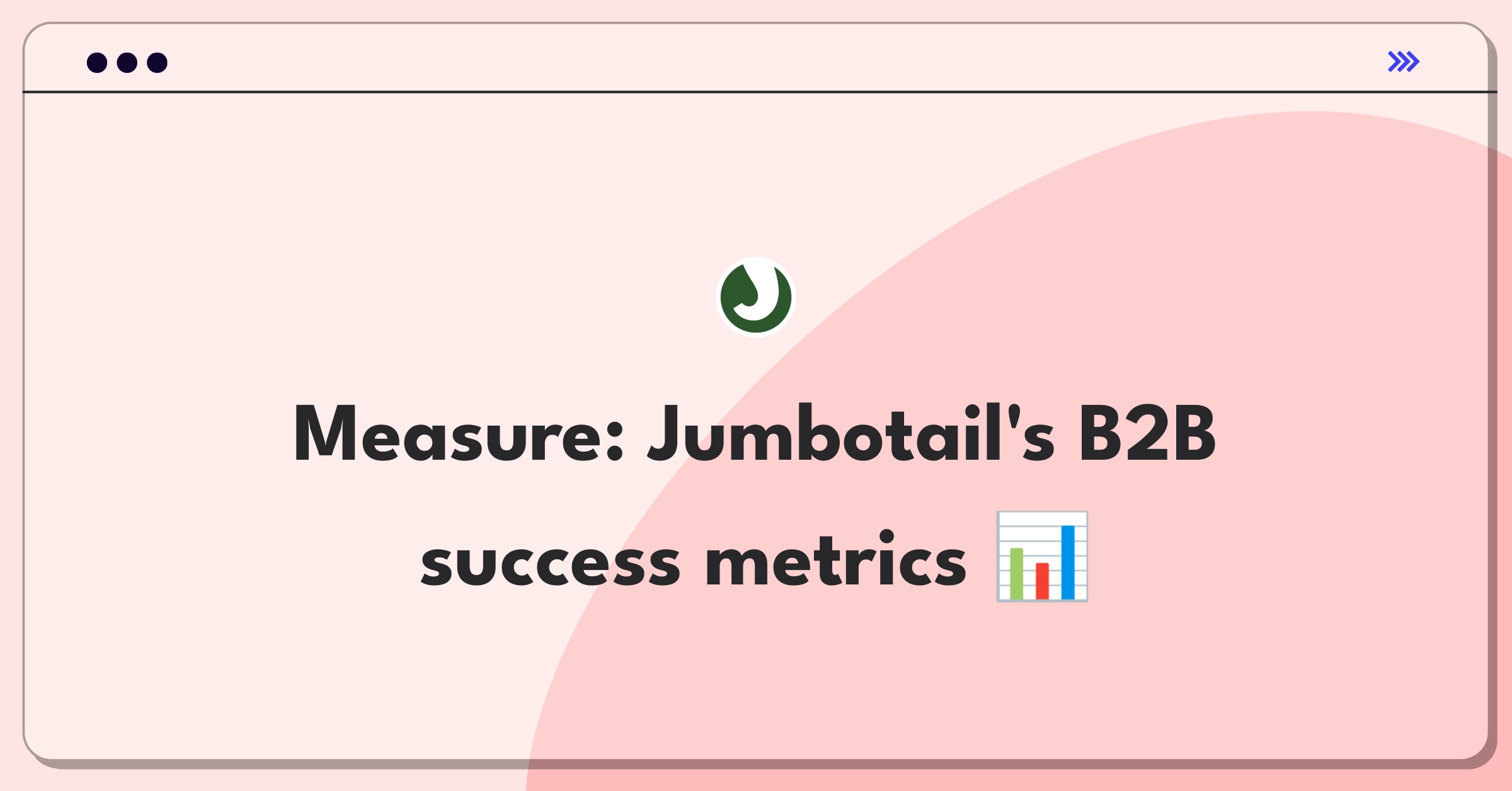Introduction
Measuring the success of Jumbotail's wholesale e-commerce platform for small retailers requires a comprehensive approach that considers multiple stakeholders and metrics. To effectively evaluate this product, I'll follow a structured framework covering core metrics, supporting indicators, and risk factors while considering all key stakeholders.
Framework Overview
I'll follow a simple success metrics framework covering product context, success metrics hierarchy.
Step 1
Product Context
Jumbotail's wholesale e-commerce platform connects small retailers with suppliers, streamlining the procurement process for inventory. Key stakeholders include:
- Small retailers (primary users)
- Suppliers/manufacturers
- Jumbotail (platform owner)
- Delivery partners
The user flow typically involves retailers browsing products, placing orders, and receiving deliveries. Suppliers list products, manage inventory, and fulfill orders. Jumbotail facilitates transactions, handles logistics, and provides customer support.
This platform fits into Jumbotail's broader strategy of digitizing the food and grocery ecosystem in India. Compared to competitors like Udaan or Amazon Business, Jumbotail focuses specifically on food and grocery, offering specialized features for this sector.
In terms of product lifecycle, the platform is likely in the growth stage, having established product-market fit and now focusing on scaling operations and expanding its user base.
Subscribe to access the full answer
Monthly Plan
The perfect plan for PMs who are in the final leg of their interview preparation
$99.00 /month
- Access to 8,000+ PM Questions
- 10 AI resume reviews credits
- Access to company guides
- Basic email support
- Access to community Q&A
Yearly Plan
The ultimate plan for aspiring PMs, SPMs and those preparing for big-tech
- Everything in monthly plan
- Priority queue for AI resume review
- Monthly/Weekly newsletters
- Access to premium features
- Priority response to requested question


.png)